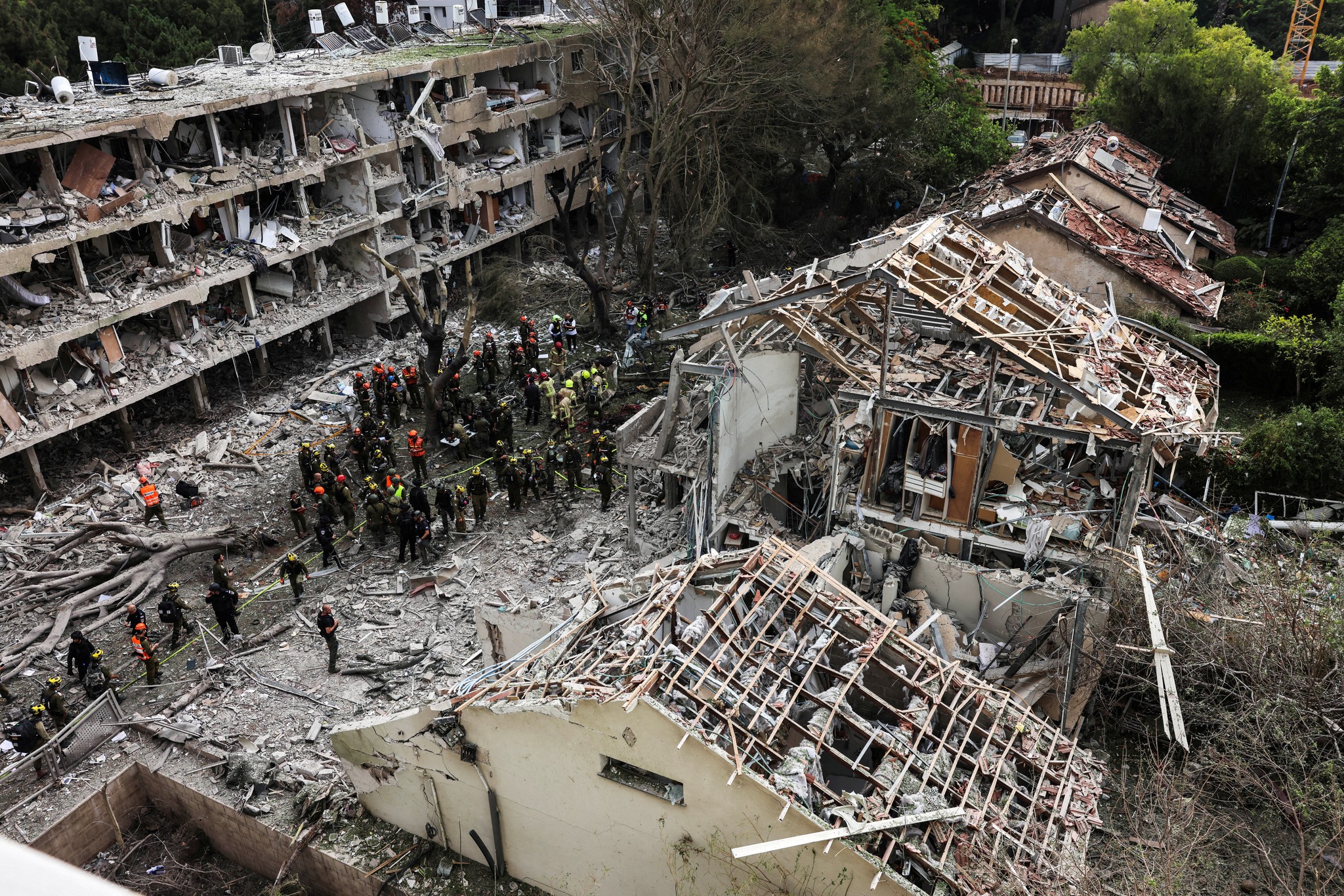In a dramatic escalation of regional hostilities, Iran launched a large-scale aerial assault on Israel late Saturday, firing more than 300 drones and missiles in what it called retaliation for an Israeli airstrike on its consulate in Damascus earlier this month.
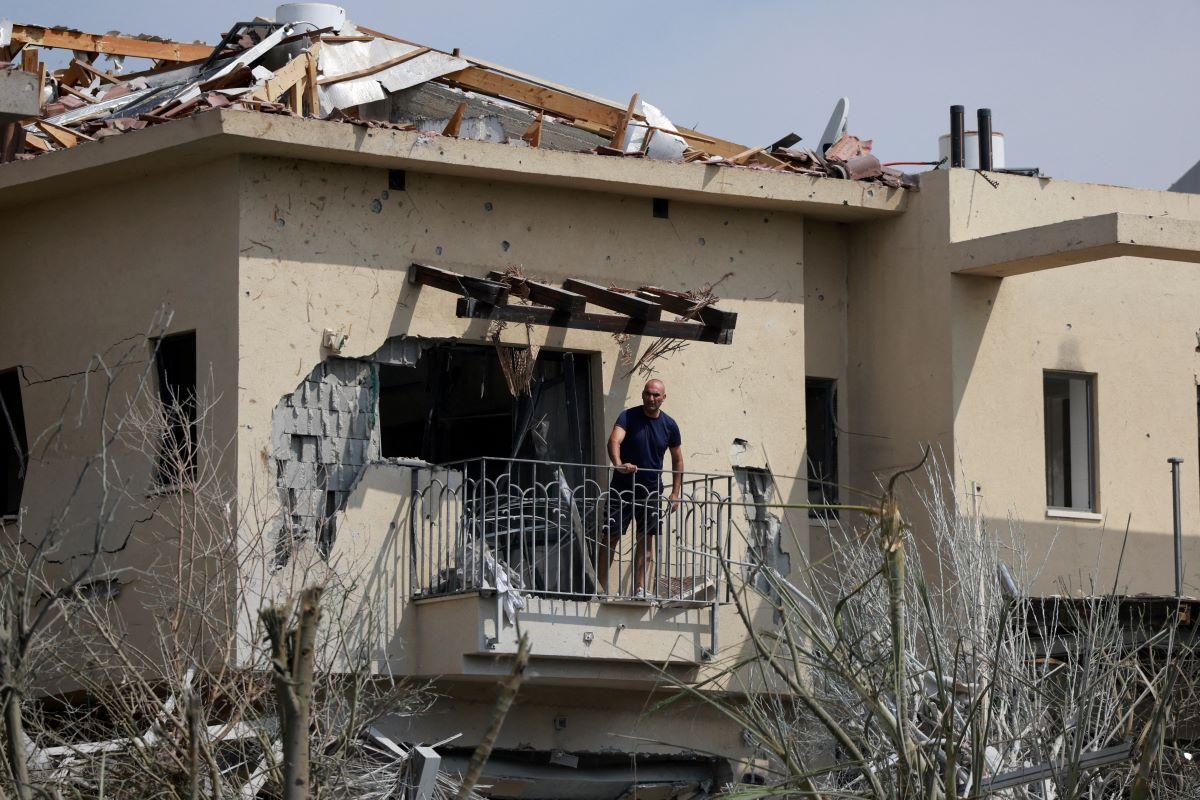
The Israeli military confirmed that a “small number” of projectiles made impact within the country, resulting in at least 23 reported injuries. A seven-year-old girl remains in critical condition, and a 70-year-old woman suffered a heart attack while seeking shelter. Most other injuries were minor, caused by shrapnel or sustained while rushing to safety.
Rear Admiral Daniel Hagari, spokesperson for the Israel Defense Forces (IDF), said that Iran launched the barrage from its own territory and described the attack as “a severe and dangerous escalation.” However, he noted that the majority of the incoming threats were intercepted by Israel’s advanced multilayered air defense systems — with support from the United States, United Kingdom, and France.
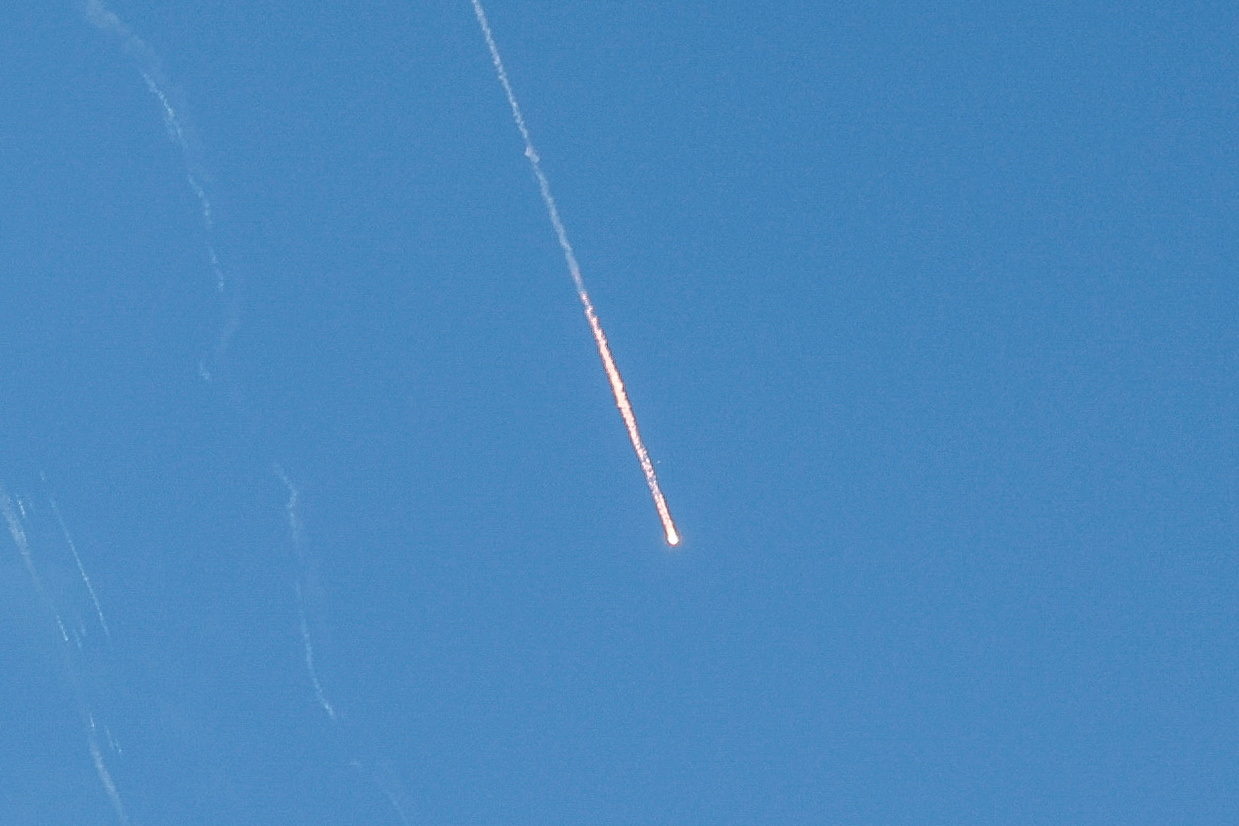
According to the Israeli military, this was the largest direct assault ever launched by Iran against Israel, marking a shift from years of proxy conflicts and covert operations to open confrontation. The assault involved a combination of cruise missiles, ballistic missiles, and suicide drones, most of which were successfully shot down outside Israeli airspace.
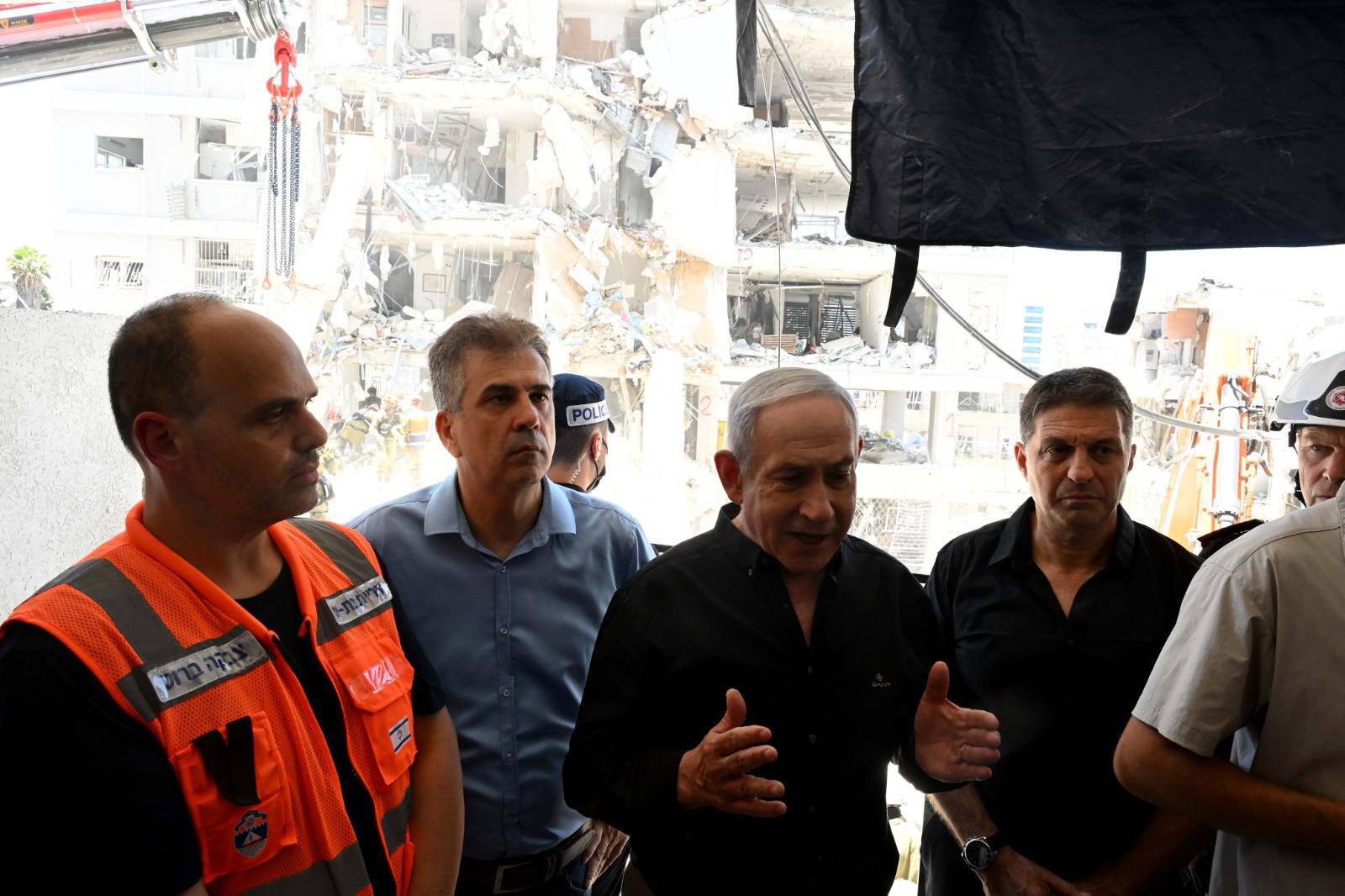
Israel’s Prime Minister Benjamin Netanyahu convened his war cabinet to discuss a potential response. “We intercepted. We blocked. Together we will win,” Netanyahu said in a brief statement.
Iran’s Islamic Revolutionary Guard Corps (IRGC) claimed responsibility for the attacks, labeling the operation “True Promise.” In a statement, the IRGC said it was a response to the “Zionist regime’s crime” — referring to the April 1 airstrike on the Iranian consulate in Syria, which killed seven members of the IRGC, including two generals.
Iran’s UN mission stated that the operation was “concluded” and warned Israel against retaliation, saying that any further military action would prompt an even harsher response. “The matter can be deemed concluded. However, should the Israeli regime make another mistake, Iran’s response will be considerably more severe,” the statement read.
World leaders quickly condemned the escalation and called for restraint. U.S. President Joe Biden held an emergency meeting with his national security team and later reaffirmed unwavering support for Israel, calling the U.S. commitment “ironclad.” The White House emphasized that while the U.S. helped intercept the attack, it does not seek a broader conflict.
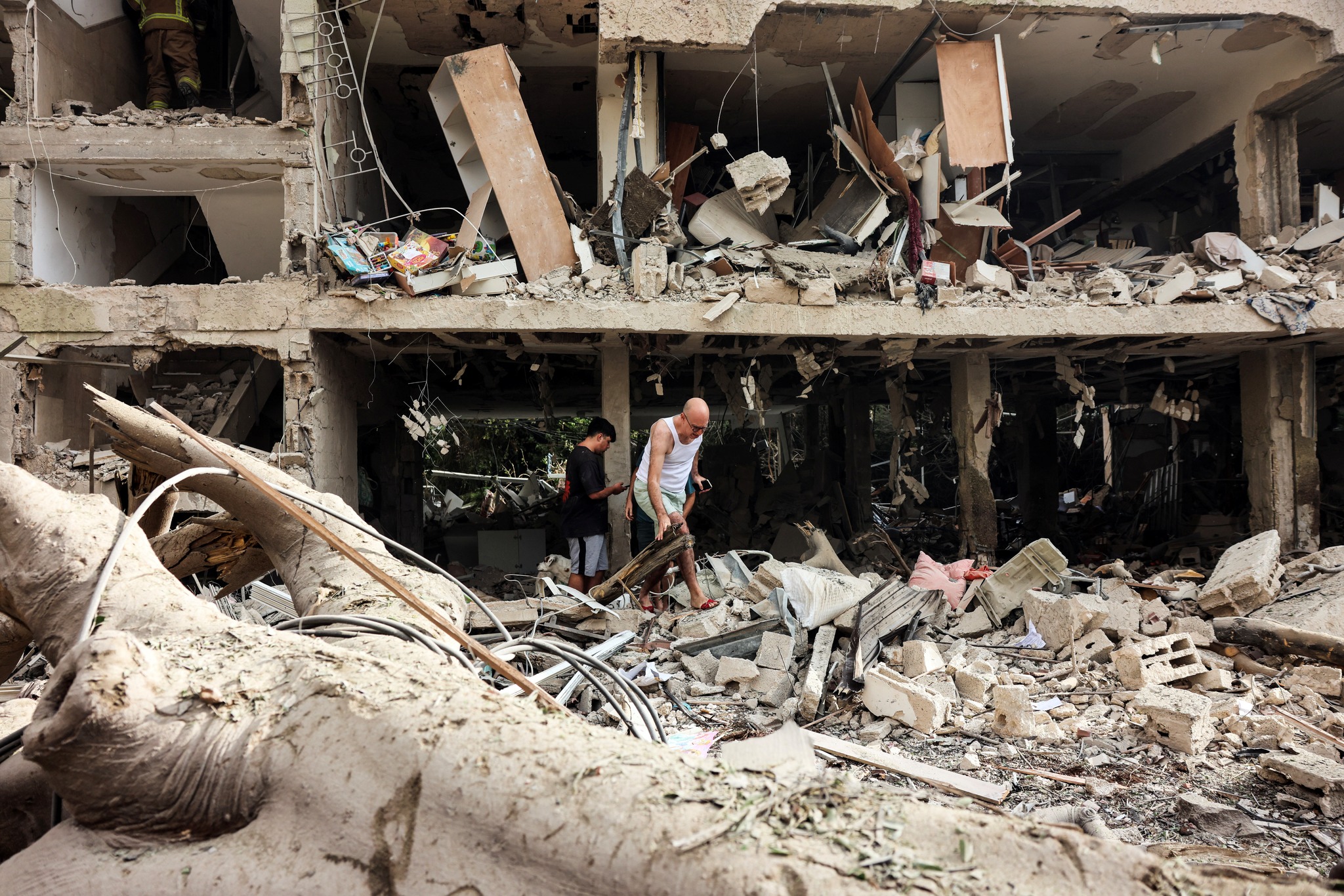
The United Nations Security Council is expected to convene an emergency session in response to the attacks.
This incident marks a turning point in Middle East tensions, intensifying fears of a wider war in the region. It also underscores the volatility of the Iran-Israel rivalry, which for years had largely played out through indirect means.
